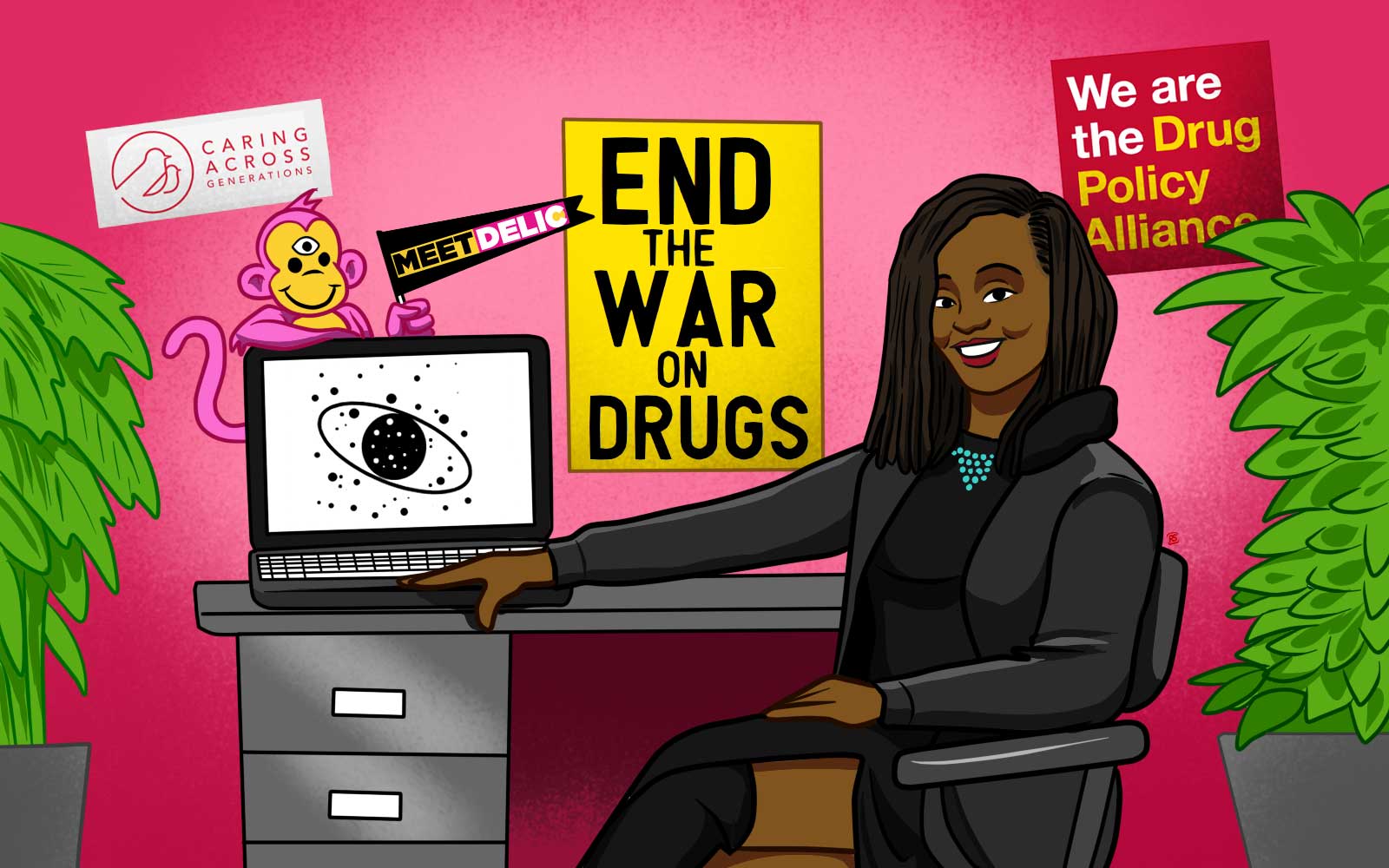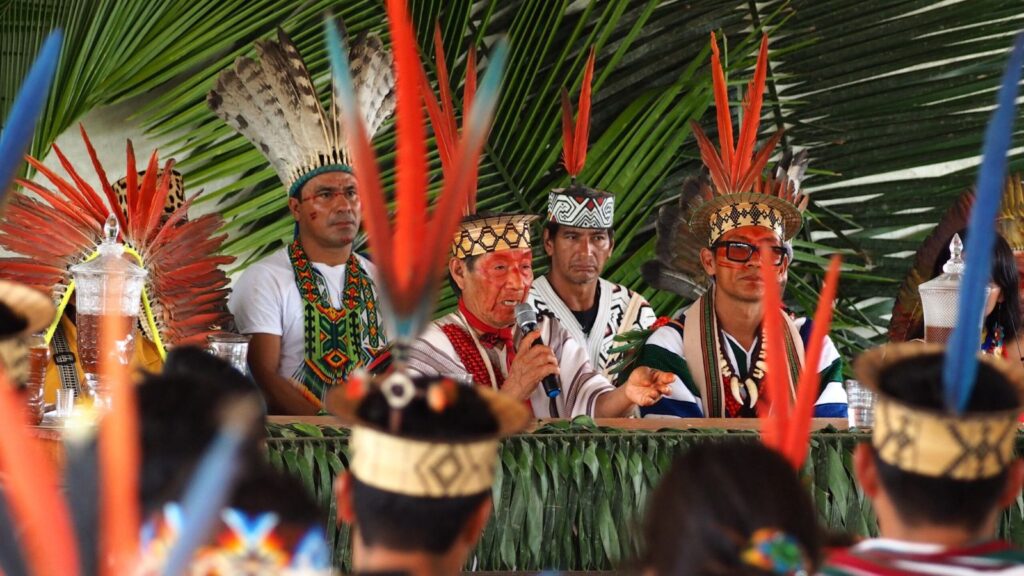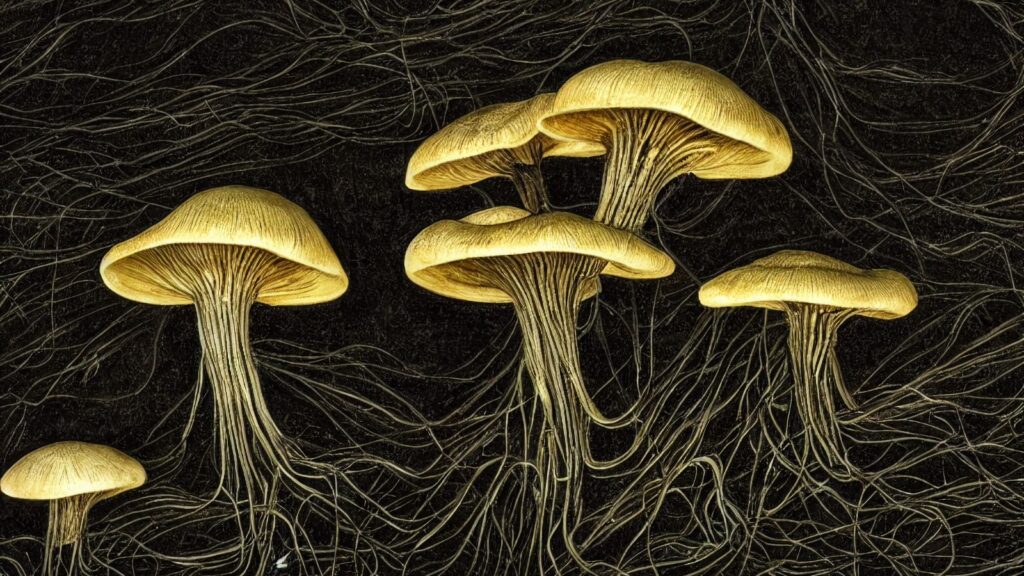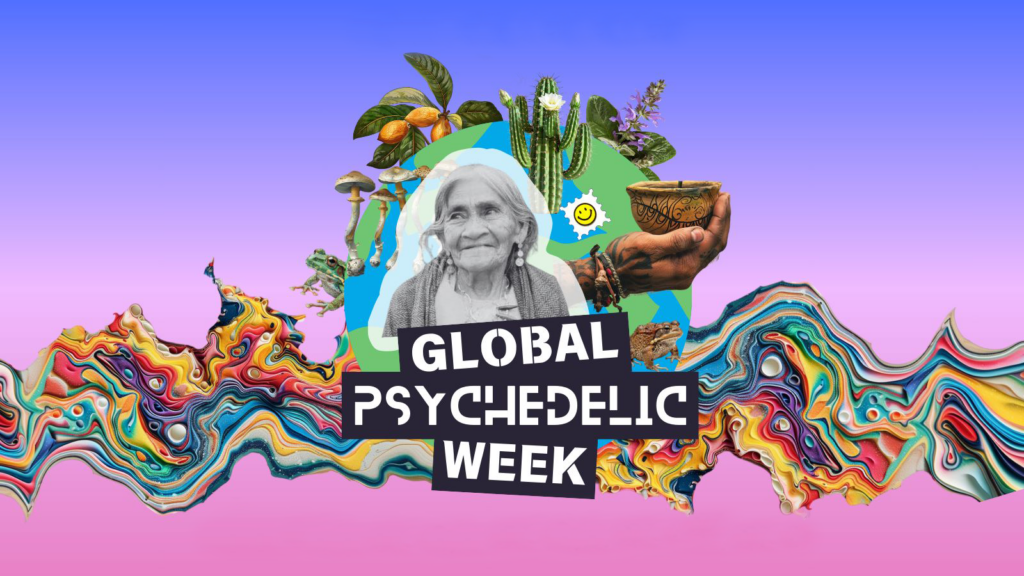Countless communities and families are victims of punitive drug policies around the world that criminalize substances and the people who use them. The stigmatization of drug use perpetuates policy that continues to disproportionately affect communities of color. As the psychedelic renaissance begins to unwind the knots of legislation and cultural messages that keep drugs and users criminalized, researchers and psychonauts alike are presented with the opportunity to serve the marginalized communities that have been most harmed by the current policies. Ifetayo Harvey is a prominent voice in the psychedelic community urging for intersectionality across research and ceremonial psychedelic practices, while also advocating for reparative drug policy reform. Inspired by her first-hand experience with the ramifications of the US incarceration system, Ifetayo has transmuted generational suffering into conscious action and opened the door for other people of color to learn about and engage with psychedelic medicine. Let’s start by exploring Ifetayo’s background and how she ended up in the world of psychedelics.
Background
Born in Charleston, South Carolina to a family of seven, Ifetayo was soft-spoken and shy in childhood, keeping things to herself including her feelings about her familial structure. Her father, Dexter Harvey, immigrated to the United States from Jamaica in the late 1970s. While working in Florida as a migrant farmer he was propositioned by an undercover police officer to sell cocaine. Motivated by supporting his family at home in Jamaica, he agreed and was promptly arrested. After getting let out on bail, Dexter left town and was re-arrested 10 years later, charged with cocaine trafficking and sentenced to 15 years in prison. Ifetayo was four at the time and her parents were already separated.
Due to this separation, Ifetayo didn’t realize that her father was incarcerated until her mother told her in elementary school. She describes how the juxtaposition between the loving father reaching out to her in letters and the lived experience of a missing parental figure generated a lot of emotional confusion and shame. This disorienting experience is not uncommon for the close to 2 million children growing up with an incarcerated parent. Ifetayo’s father was released after 8 years, but only to be deported back to Jamaica where he was unable to financially support his family in the United States.
Luckily, Ifetayo was surrounded by a close extended family that helped support her in her academic and creative endeavors. She was active in the brass section of her high school and college marching, jazz and symphonic bands and always did her best in school. In 2010, she graduated high school and set out for Smith College with a major in History and African Studies.
However, high achievement and supportive familial bonds couldn’t fully shield Ifetayo from the effects of parental separation. Though they have reconnected in her adulthood, the lack of in-person or telephone communication with Ifetayo’s father created a distant dynamic in their relationship. The full financial and domestic burden fell to Ifetayo’s mother, adding a consistent level of stress to life at home with seven children. These childhood experiences helped lay the foundations of Ifetayo’s career in drug policy reform and advocacy where she was introduced to the world of psychedelics.
Psychedelic Beginnings
While at college in Massachusetts, Ifetayo interned at the Drug Policy Alliance where she would later work as the Marketing Coordinator. Ifetayo found the Drug Policy Alliance’s compassionate perspective on drugs and their users a refreshing change from the usual disdain and criminalization. While interning, Ifetayo had the opportunity to share her story at the 2013 International Drug Policy Reform conference. This speech gave her the opportunity to publicly release some of her internalized shame and connect to other people who have been affected by the War on Drugs.
During this conference, Ifetayo attended a panel on psychedelics for end-of-life treatment. Before this, her frame of reference for psychedelics was limited to recreational antics and she was not fully aware of their healing properties. After this time, Ifetayo was in the midst of searching for tools to manage her mental health and trauma. Inspired by the hope of psilocybin therapies, she decided to take 3.5 grams of magic mushrooms and proceeded to have a paradigm-altering trip that colored the rest of her life and career.
When retelling this story at the 2019 Women’s Visionary Council, Ifetayo recognized that being at a private New England college gave her access to privileges that were unavailable to her or her peers at home in Charleston. Being able to have her inaugural psilocybin trip in the beautiful New England countryside without fear of police intervention or legal consequence allowed Ifetayo to experience a spiritual reset and embark on a journey towards healing. Believing that the restorative power of psychedelics should be available to everyone, Ifetayo began her career in the psychedelic industry as an Executive Assistant at the Multidisciplinary Association for Psychedelic Studies (MAPS). Here, her eyes were opened further to the need for representation in all areas of the psychedelic industry and the importance of integrating the historical oppression of Black people in the United States into the conversation surrounding drugs.
Psychedelic Advocacy
In order to better understand Ifetayo’s essential contributions to the world of psychedelics, let’s take a look at the racist history of the War on Drugs. Summed up by President Nixon’s cabinet member John Ehrlichman, the War on Drugs set out to systematically target two groups:
“The Nixon campaign in 1968, and the Nixon White House after that, had two enemies: the antiwar left and Black people.”
The war on drugs was the perfect way to target anti-war and civil rights organizers by criminalizing specific substances associated with these groups: therefore allowing police to raid their homes, arrest their leaders and paint a picture of people of color or counterculture as disposable criminals.
These sentiments are still present in today’s American society where Black people are arrested at higher rates for drug crimes even though they use drugs at statistically similar rates to other races. The United States arrests roughly 1.3 million people a year on drug-related charges, 80% of whom are Black or Latinx. It is much safer to engage with illegal substances as a white person and Ifetayo often speaks on the importance of understanding the violent history of Black American’s interactions with police and the justice system when creating inclusive spaces for psychedelic healing and discovery.
When research practitioners and participants are primarily white, then new models of psychedelic care fail to address the unique needs of POC individuals and continue to center whiteness as the default experience. Without naming the implications of the War on Drugs as racist and recognizing who has been harmed or has profited from these policies, people of color, especially Black people, stay excluded from the psychedelic movement.
Ifetayo outlined these oppressive structures in her 2016 piece “Why the Psychedelic Community is so White” and soon after worked to remedy this trend by coming together with a group of passionate volunteers to found the People of Color Psychedelic Collective.
The People of Color Psychedelic Collective works to bring psychedelic education and resources to people of color around the world.
“Our aim is to build our own table instead of asking for a seat at another”
The POCPC works to create an infrastructure that lifts up marginalized voices in the psychedelic industry and supports and advocates for diverse and inclusive psychedelic spaces. There are more barriers in place for people of color to access psychedelic care than their white counterparts.
The history of medical malpractice, particularly in Black communities, may make participation in psychedelic studies less palatable compared to white populations who have historically been able to better trust establishments.
The People of Color Psychedelic Collective also works to highlight the wisdom of indigenous and people of color in the world of psychedelia. In 2018, in partnership with Cosmos Ancestrales Visiones, they fundraised over ten thousand dollars to save the archive of Maria Sabina. Sabina is known as the Mazatec curandera who popularized psilocybin mushrooms and created a digital campaign to bring awareness to her story.
Through her work with the POCPC, Ifetayo helps to create safe, educational spaces for communities in need of resources and compassionate care. In podcast interviews, Ifetayo describes her experience of often being the only person of color in psychedelic spaces. Being able to come together as a community is especially important for groups who have historically dealt with forced separation and ancestral trauma. Ifetayo Harvey is helping point a new generation of folks towards the safe integration of psychedelic medicine and showing the world the power of integrating past hardships with present action for a better future.
If you are as intrigued by Ifetayo’s work as we are, make sure to come to Meet Delic and hear her panel on psychedelic activism. Let us know in the comments below what you are most looking forward to hearing her dive deeper into.














